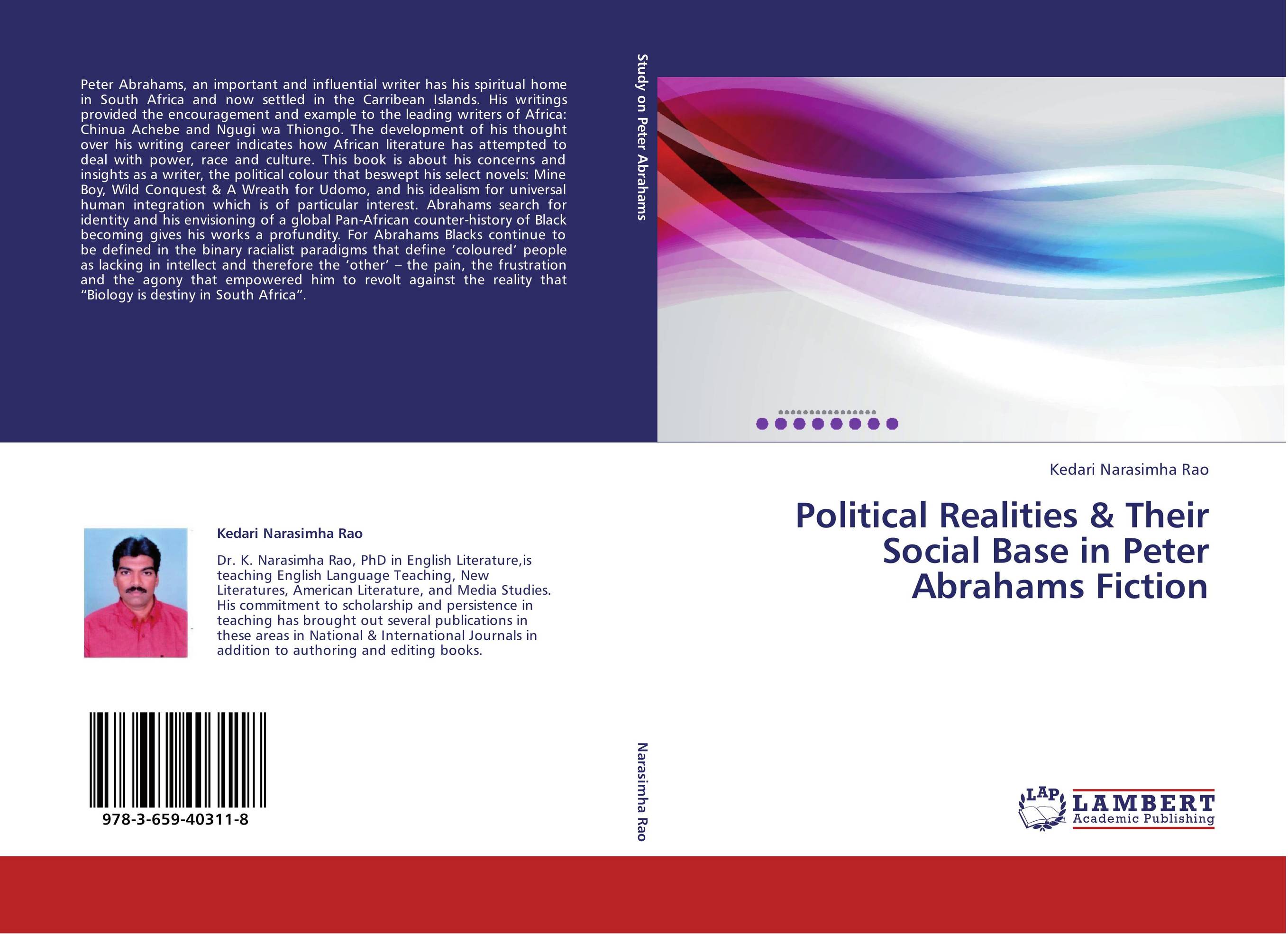| Поиск по каталогу |
|
(строгое соответствие)
|
- Профессиональная
- Научно-популярная
- Художественная
- Публицистика
- Детская
- Искусство
- Хобби, семья, дом
- Спорт
- Путеводители
- Блокноты, тетради, открытки
Political Realities & Their Social Base in Peter Abrahams Fiction.

В наличии
| Местонахождение: Алматы | Состояние экземпляра: новый |

Бумажная
версия
версия
Автор: Kedari Narasimha Rao
ISBN: 9783659403118
Год издания: 2013
Формат книги: 60×90/16 (145×215 мм)
Количество страниц: 116
Издательство: LAP LAMBERT Academic Publishing
Цена: 32457 тг
Положить в корзину
| Способы доставки в город Алматы * комплектация (срок до отгрузки) не более 2 рабочих дней |
| Самовывоз из города Алматы (пункты самовывоза партнёра CDEK) |
| Курьерская доставка CDEK из города Москва |
| Доставка Почтой России из города Москва |
Аннотация: Peter Abrahams, an important and influential writer has his spiritual home in South Africa and now settled in the Carribean Islands. His writings provided the encouragement and example to the leading writers of Africa: Chinua Achebe and Ngugi wa Thiongo. The development of his thought over his writing career indicates how African literature has attempted to deal with power, race and culture. This book is about his concerns and insights as a writer, the political colour that beswept his select novels: Mine Boy, Wild Conquest & A Wreath for Udomo, and his idealism for universal human integration which is of particular interest. Abrahams search for identity and his envisioning of a global Pan-African counter-history of Black becoming gives his works a profundity. For Abrahams Blacks continue to be defined in the binary racialist paradigms that define ‘coloured’ people as lacking in intellect and therefore the ‘other’ – the pain, the frustration and the agony that empowered him to revolt against the reality that “Biology is destiny in South Africa”.
Ключевые слова: apartheid, South African Literature, Racial Oppression, History and Nation



